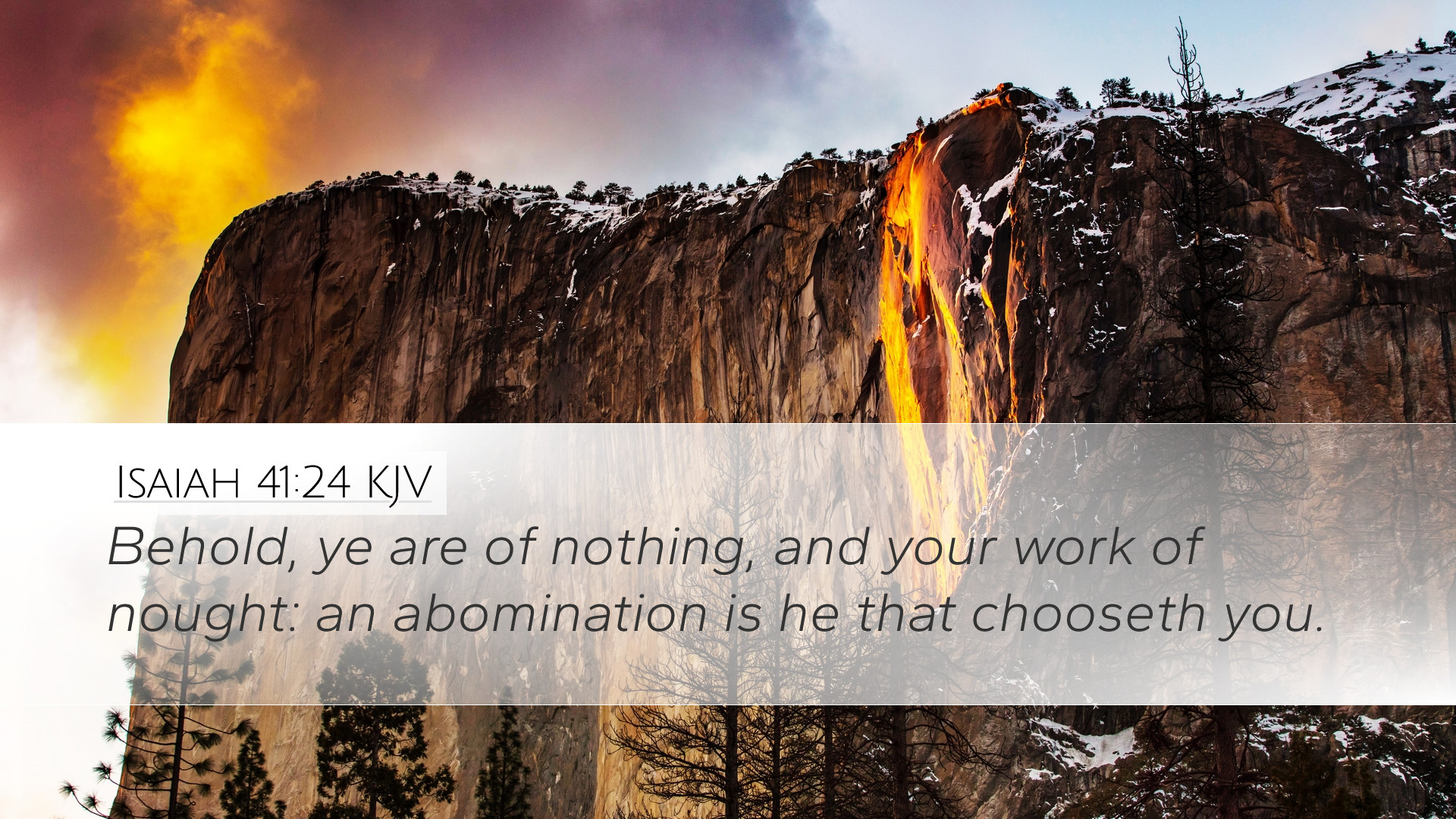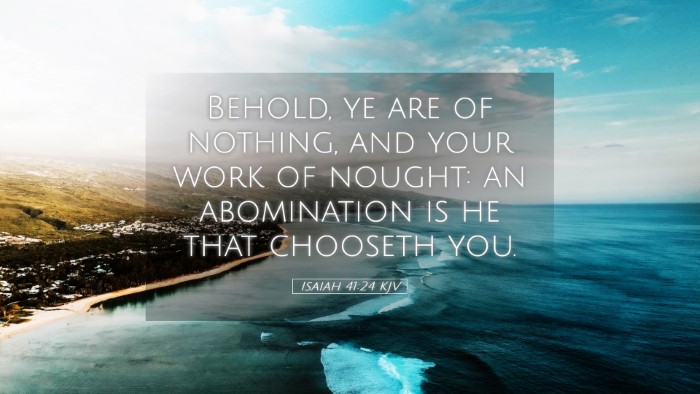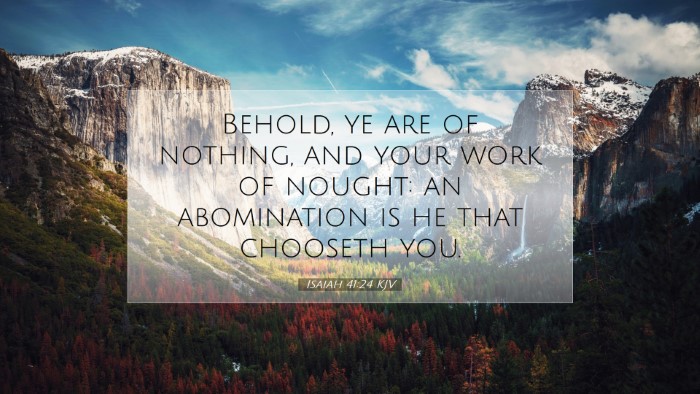Commentary on Isaiah 41:24
Verse: "Behold, ye are of nothing, and your work of naught: an abomination is he that chooseth you."
Introduction
The verse from Isaiah 41:24 is a profound declaration of the insignificance of idol worship and the futility of relying on false gods. This commentary draws from the insights of renowned theologians like Matthew Henry, Albert Barnes, and Adam Clarke, providing a comprehensive understanding suited for pastors, students, and scholars alike.
Contextual Background
In the broader context of Isaiah 41, God addresses Israel amidst their fears and doubts, assuring them of His sovereignty and power over the nations. The chapter emphasizes God’s ability to raise up and bring down rulers and emphasizes that true strength lies in reliance on Him.
Understanding the Idolaters
Henry elucidates that the people addressed in this verse are those who pursue idolatry, engaging in the worship of images that cannot save. The phrase "ye are of nothing" critiques the creators of idols, indicating that they have no substance or power. Clarke further elaborates that those who make idols and the idols themselves are equally worthless, and their worship is an affront to God. This condemnation serves as a warning against misplaced trust in created things rather than the Creator.
Theological Implications
Isaiah's assertion that idol worship is an "abomination" highlights the moral and spiritual gravity of forsaking God for falsehoods. Barnes points out that the choice to worship idols is not merely a personal or cultural preference; it is a grave sin. This verse illustrates the natural consequence of humanity turning away from God — the pursuit of "nothingness" that leads only to futility and despair.
Analysis of Phrases
- "Behold, ye are of nothing": This stark phrase serves as a divine revelation that contrasts the eternal nature of God with the temporal and void nature of idols. Henry notes that this is a call to recognize the supremacy of God.
- "and your work of naught": The work done in crafting idols is deemed pointless. Clarke argues that no matter the artistic skill involved, the end result is devoid of any divine merit or power.
- "an abomination is he that chooseth you": Here, the choice of idols represents a rejection of God. Barnes cites that this highlights the moral failure of those who forsake the living God for lifeless things, signaling the depths of moral depravity.
Practical Applications
The exposition of this verse is not confined to ancient Israel but resonates with contemporary believers. It serves as a reminder to examine the "idols" in our lives that compete with our devotion to God. These could range from materialism to personal ambitions that overshadow our commitment to the divine.
Warnings Against Modern Idolatry
Henry advises that worshipping anything other than God can lead to spiritual desolation. The human heart is prone to creating idols in the form of relationships, wealth, or status. The stark warning issued through Isaiah compels modern believers to reflect on what they truly value in their lives.
Encouragement for Faithfulness
This passage also serves as an encouragement for followers of Christ. It reaffirms the importance of remaining steadfast in faith. By recognizing the futility of false gods, believers are called to reaffirm their relationship with the one true God, who holds the power to save and sustain.
The Hope Within the Message
Despite the strong language of judgment used in this verse, there lies within it an implicit invitation to return to God. It underscores the profound truth that while idols fail, God promises security, strength, and salvation to those who acknowledge His lordship.
The Promise of Redemption
Clarke emphasizes that this message to the Israelites, filled with warnings, is ultimately rooted in God's desire for their redemption. Rather than condemning them eternally, God seeks their repentance and return to Him, offering a path to restoration even amidst their idolatrous practices.
Conclusion
Isaiah 41:24 stands as a timeless reminder of the dangers of idolatry and the importance of true worship. Through the insights of Matthew Henry, Albert Barnes, and Adam Clarke, it becomes evident that this scripture invites both reflection and action in the hearts of believers. As we navigate a world filled with distractions, may we cling to the truth of God’s sovereignty and reject the allure of “nothingness” in favor of the abundant life found in Him.


